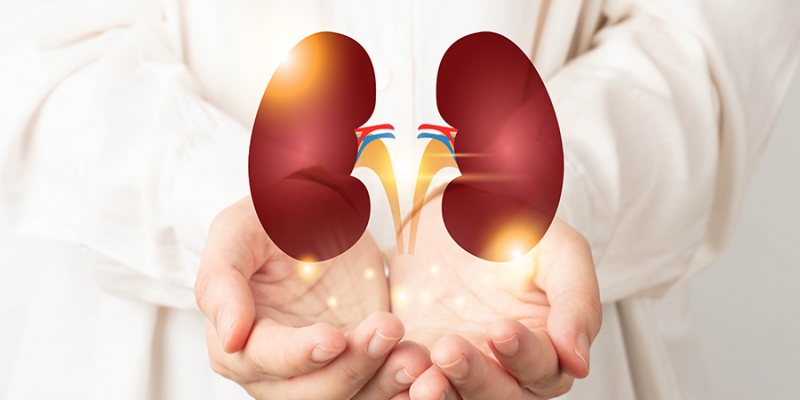Kidney Stones (for Children) | RG Stone Hospital
2022-09-01 / RG STONE HOSPITAL / Urinary / Kidney Stone

Kidney stones are small, hard deposits of mineral and acid salts that are formed in the urinary tract and blocks the flow of urine, causing deep pain and sometimes nausea and vomiting. Kidney stones are still relatively rare in children, but the number of cases is increasing.
Types of Kidney Stones in Children:
Kidney stones form when large amounts of substances, such as salts, accumulate in the kidneys and eventually turn into stones or crystals. Other disorders can also cause stones, but most are caused by diet and nutritional problems. Some doctors believe that many children may get the disease because they have too much salt in their diet. These are of the following types:
-Calcium stones: These are caused by too much salt.
-Cystine stones: These can form in people with cystinuria, a genetic disorder characterized by increased stone formation in the kidneys, bladder, and ureters.
-Struvite stones: These are most commonly caused by urinary tract infections.
-Uric acid: These types of stones may occur after chemotherapy or with gout.
Symptoms of Kidney Stones:
Kidney stones affect children in different ways. Symptoms of it vary from patient to patient and severity to severity. Some stones cause no pain as they are still and do not move while some stones cause extreme pain due to urinary obstruction. Common symptoms are:
-Extreme pain in the abdomen, sides, or back
-Blood in the urine
-Frequent urination
-Nausea and/or vomiting
-Any child experiencing pain and has blood in their urine should be evaluated by a doctor even if it`s just a little bit.
Causes of kidney stones in children:
Most kidney stones are caused by high levels of calcium, oxalate, or phosphorus in the urine. These components are present in urine and cause no problem if levels are nominal.
Certain foods and drinks may increase the likelihood of developing kidney stones in children who are more likely to develop kidney stones. If you are immobile, you are more likely to develop kidney stones. When a child is not moving, bones can release excess calcium into the blood.
Dietary measures for kidney stones in children:
There are many things you can do to reduce the chances of your child developing more kidney stones. Children with kidney stones should:
-Drink plenty of fluids throughout the day (urine is usually very pale yellow). should be visible). Ask your healthcare professional about the amount of water that is appropriate for your child.
-Limit salt in the diet
-It is recommended to consume more fruits and vegetables, especially foods with more vitamin C
-Avoid meat, processed foods, fast food, and carbonated beverages
-Avoid foods and drinks containing high fructose corn syrup
-Maintain a healthy weight
-Eat recommended amounts of foods and drinks rich in calcium
If you witness any of the above-mentioned symptoms in your child. Take them to your nearest RG Hospital with our experts for the best treatment.
Categories
Hernia Repair
Appendicitis
Piles
Urological Treatment
Hernia treatment
Enlarged Prostate (BPH)
Gall Bladder Stone
Urinary / Kidney Stone
Vitamins
Indian Health Care System
Exercise
Obesity
Female Urinary Incontinence
Single Incision Laparoscopic Surgery (SILS)
Kidney Cancer
Bladder Cancer
Ovarian cancer
Nephrology
Bariatric Surgery
Kidney Function Test

